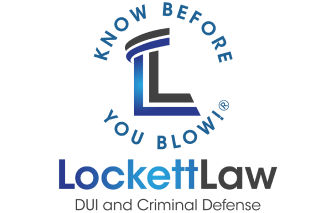Orlando Property Crime Defense
Theft and property crimes occur when a person intentionally takes or uses someone else’s property without permission. These offenses can range from minor to serious and have significant consequences.
While you may believe that theft and property crimes are minor offenses, it’s important to understand that they can lead to severe penalties, including jail time. These convictions can also have lasting negative effects on your employment and future opportunities.
Given the complexity of theft and property crime laws, it’s crucial to work with a qualified defense attorney. At Lockett Law, P.A., our experienced attorneys can provide expert guidance and representation.
This resource will delve into the different types of theft and property crimes in Florida, their potential penalties, and effective defense strategies.
Property crimes in Orlando can have serious legal consequences. At Lockett Law, P.A., our experienced Orlando criminal defense lawyers are dedicated to protecting your rights and fighting for the best possible outcome.
Florida Statute Chapter 812
Florida Statute Chapter 812 outlines the laws governing theft, robbery, and other property-related crimes. Here’s a breakdown of some common offenses:
- Shoplifting/Retail Theft: Taking merchandise from a store without paying.
- Petit Theft: Theft of property valued under $750.
- Grand Theft: Theft of property valued over $750.
- Dealing in Stolen Property: Buying, selling, or possessing stolen property.
- Burglary: Entering a structure with the intent to commit a crime.
- Criminal Mischief: Damaging or destroying property.
Other Property Crimes
- Arson: Intentionally setting fire to a structure.
- Trespassing: Entering or remaining on property without authorization.
- Burglary: Entering a structure with the intent to commit a crime.
- Criminal Mischief: Damaging or destroying property.
Understanding Penalties and Defenses
The penalties for property crimes vary depending on the specific offense and circumstances. Common defenses may include:
- Lack of intent: Proving you didn’t intend to commit the crime.
- Mistaken identity: Challenging the prosecution’s identification of you as the perpetrator.
- Necessity: Arguing that you were forced to commit the crime due to circumstances beyond your control.
- Entrapment: Claiming that law enforcement coerced you into committing the crime.
- Constitutional challenges: Challenging the legality of the search and seizure that led to the arrest.
Property crimes in Florida encompass a wide range of offenses, including theft, burglary, and criminal mischief. These crimes can involve real property (land, buildings) or personal property (items like cars, jewelry, and electronics).
The penalties for theft and property crimes in Florida depend on the specific offense and the value of the property involved. Here’s a breakdown of potential penalties:
- Second-Degree Misdemeanor: Up to 60 days in jail and a $500 fine.
- First-Degree Misdemeanor: Up to one year in jail and a $1,000 fine.
- Third-Degree Felony: Up to five years in prison and a $5,000 fine.
- Second-Degree Felony: Up to 15 years in prison and a $10,000 fine.
- First-Degree Felony: Up to 30 years in prison and a $10,000 fine.
It’s important to note that these are maximum penalties, and the actual sentence may be lower. Additionally, other factors like your criminal history and the circumstances of the crime can influence the final outcome.
Potential Penalties for Property Crimes in Florida
Penalties for property crimes vary depending on the offense and the value of the property involved. They can include:
- Jail time
- Fines
- Probation
- Community service
- Restitution (repaying the victim for losses)
Other Possible Penalties for Florida Theft Charges
Beyond the primary penalties, theft and property crimes can have additional consequences in Florida:
- Fingerprint Requirement: As per Florida Statute Section 943.051, the state of Florida mandates that individuals convicted of a petit theft crime have their fingerprints taken in court and their name entered into a national database for employers to review during background checks.
- Supplemental Fines: Under Florida Statute Section 812.032, individuals convicted of theft offenses that result in financial gain, injury, property damage, or other losses may be required to pay additional supplemental fines. These fines can be up to double the value of the stolen property and may include costs related to the investigation and prosecution. Defendants facing supplemental fines must attend a court hearing to determine the exact amount
It’s important to understand these potential consequences and seek legal guidance from an experienced Orlando criminal defense attorney.
Defenses for Property Crimes
- Factual Challenges: Challenging the government’s evidence or the circumstances surrounding the alleged crime.
- Intent: Proving that you did not have the necessary intent to commit the crime.
- Value Disputes: Challenging the estimated value of the property involved.
- Constitutional Challenges: Challenging the legality of the search and seizure that led to the arrest.
Orlando Theft Crime Defense Attorney
At Lockett Law, P.A., our experienced Orlando criminal defense attorneys are dedicated to protecting your rights and fighting for the best possible outcome. Call us at (904) 858-9818 or contact us through our website for a free consultation




